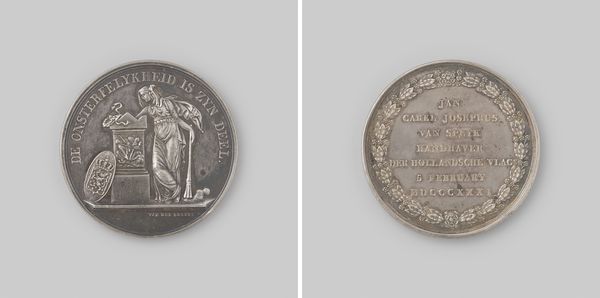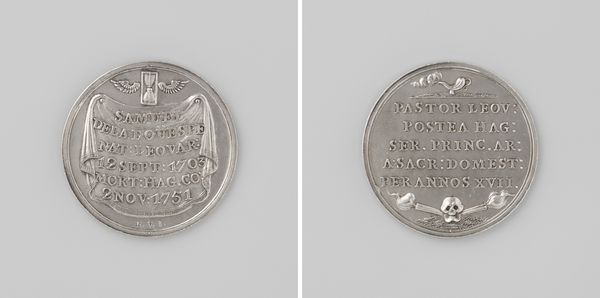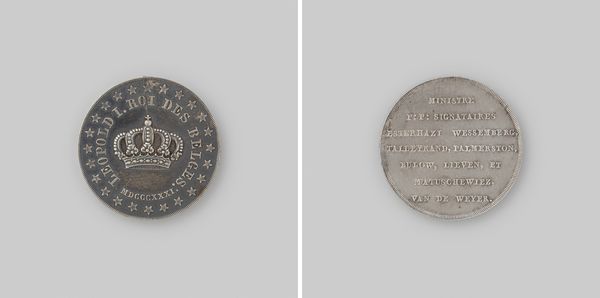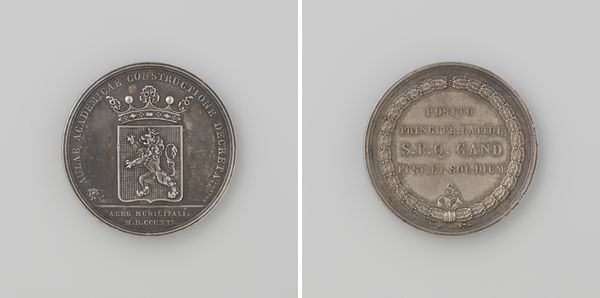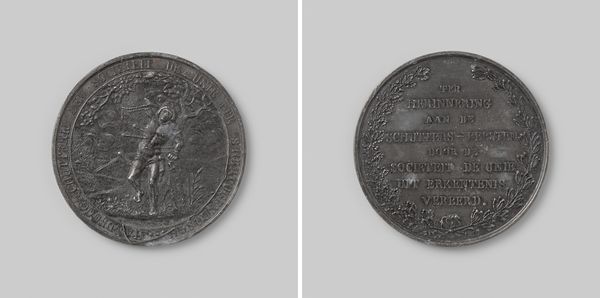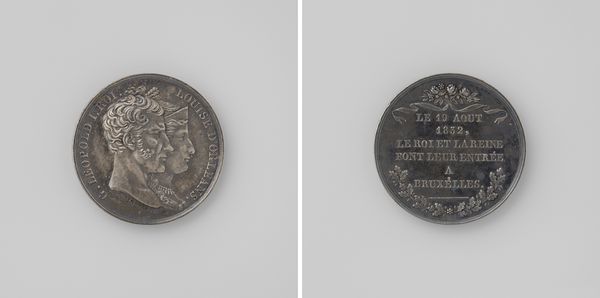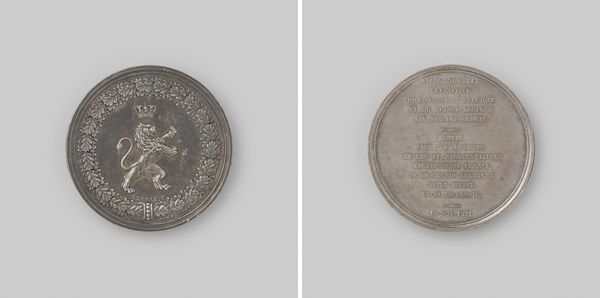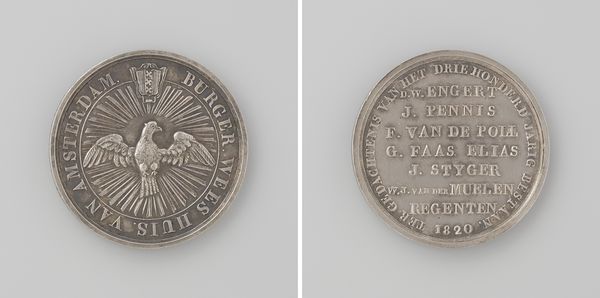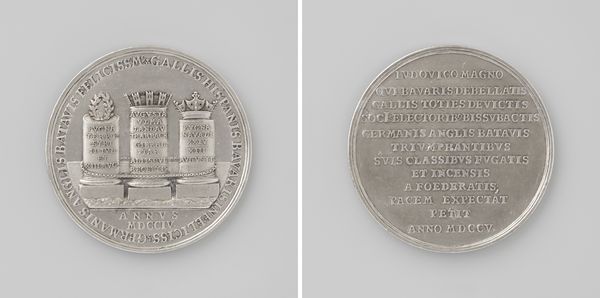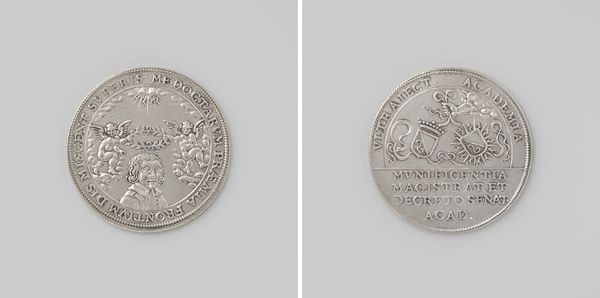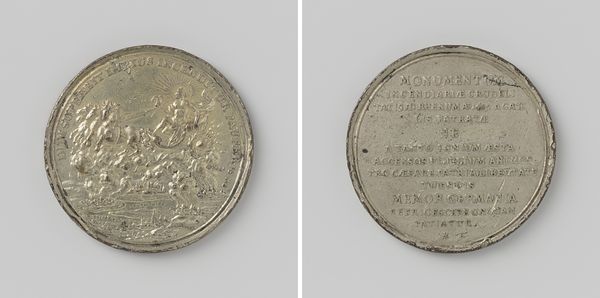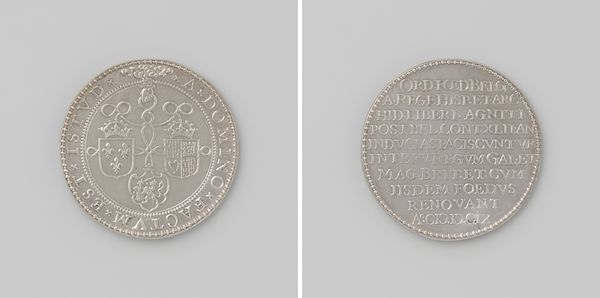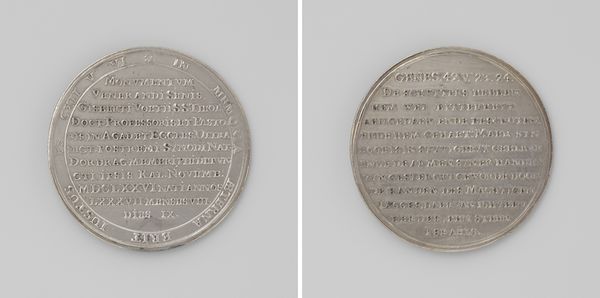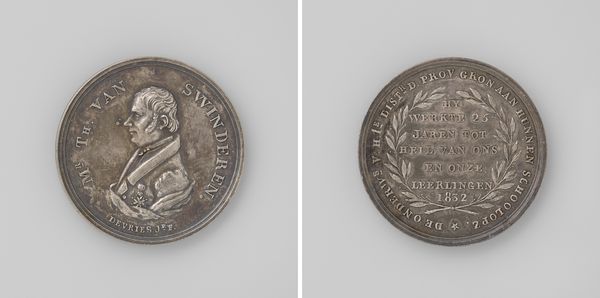
print, metal, relief
#
portrait
# print
#
metal
#
relief
#
cityscape
#
history-painting
Dimensions: diameter 2.5 cm, weight 8.30 gr
Copyright: Rijks Museum: Open Domain
This small silver medal, made by M. Borrel, commemorates the quelling of Orangist movements in Ghent. It’s a humble, yet powerful object, reflecting a specific moment in Belgian history. The medal’s value lies not in the preciousness of silver, but in the precision of its die-stamping. The sharp, crisp lettering and the delicate wreath around the edge speak to the skill of the metalworker and the industrialization of production. Each strike of the die would have quickly produced a medal, allowing for widespread distribution. This ease of reproduction is key; these medals weren’t just commemorative objects, but tools of political messaging. The inscriptions, declare "Belgium will henceforth be free," and "The House of Orange succumbed to its last efforts in Ghent on February 2, 1831." It's a testament to the potent use of craft in solidifying national identity. We can read this little medal not just as a work of art, but as evidence of how making and materials become intertwined with the grand sweep of history.
Comments
No comments
Be the first to comment and join the conversation on the ultimate creative platform.
